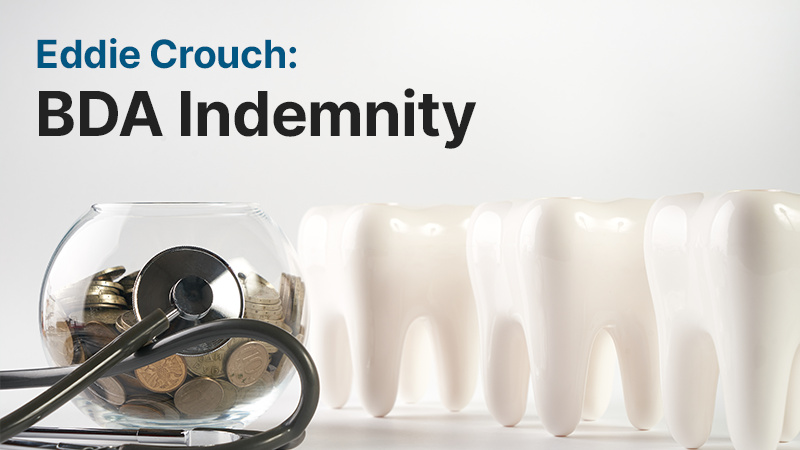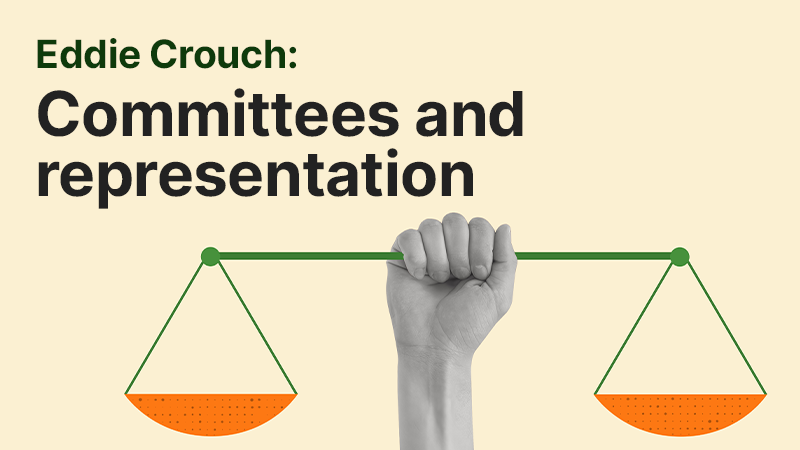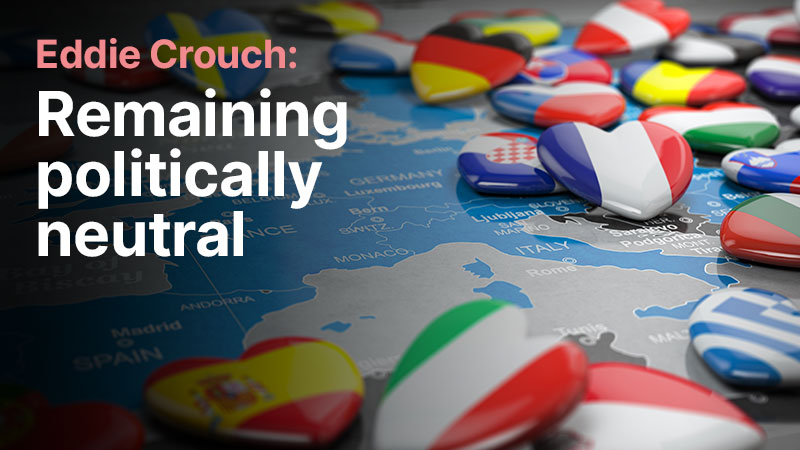The, the Council of European Dentists meets in Gdansk for two days,
uh, at the end of this week actually, and um, you know,
uh, we, we've done a huge amount of, even, even though we're,
we're no longer, um, full members of the Council of European Dentists because Brexit put
pay to that. Um, we are affiliate members, and working
alongside some of those colleagues across Europe, um,
when, when they were giving us the heads up of what the European Union were doing,
for example, about amalgam, uh, and some of the other things with material costs and um
um medical um regulations and um.
You know, uh, uh, medical history, uh, electronic medical history records,
um, some of these things, you know, it's really important to,
to talk to colleagues. Um, one of my colleagues from Holland recently,
he um, he was telling me that they were getting quite a lot of,
um, Overseas, um, people coming in and working in Holland,
from, from South Africa, probably because of the language issues,
and um it it it was very akin to what I think might happen with provisional
registration, and having those conversations about some of the things that have happened
there are really important.
And he, he, he also contacted me about the fact that in Holland,
they have massive problems in a lot of countries actually in recruiting to rural and
er and coastal areas.
Uh, where they can't get dentists to move to.
And the Dutch dental, uh, the Dutch government had come up with an idea of building another
dental school in the south of Holland and believing that that was going to be the
solution to their workforce problem.
And then, uh, you know, people were qualifying then and going straight back to Amsterdam again,
you know, uh. The, the, the problems that we think we have
uniquely in the UK are exhibited across the world.
Um, you know, I, the irony of it is on the world stage,
we are advocating for a wider use of a dental team.
I know the hygienists and therapists in the UK probably won't believe this,
but we do. Um, and yet some of the other, uh,
dental associations of the world think, no, we're dentists,
we don't want that model.
But, you know, if we are to improve the oral health of the,
the, the world population, we, we, we're not gonna do it with a number of dentists,
we've got to do it with a team approach.
Do you think that it is um Obviously there are, um, as you say,
it's not uniquely British, any of the problems, but the UK market,
because of the existence of the of the NHS is decidedly different to other countries,
isn't it? It's not like you can just pick up a model for
an association and plant it into the UK if it's working somewhere else because of the um the
NHS. No, uh, you're right, absolutely, you're right,
um, but I mean, uh.
thing I, I, I, I, I, I, I think we're, we are working better with the team,
teamwork approach. I, you know, we, we saw when we piloted um a
skill mix environment, uh, sadly abandoned, you know, because of uh some of the issues which I
think we, we could have corrected, um.
Uh, you know, I, I, I, I, I think uh the insurance model that's obviously used in a lot
of parts of the, of the world or co-payment organisations and things,
it's really interesting to have conversations with those uh organisations about how we might
implement that in the UK.
I mean, um. We, we had the Norwegian Dental Association
come to Wimpole Street a year or so ago, uh, because the Norwegian government are looking to
invest more money in public dental services, and they wanted to come and uh and understand
how the NHS worked.
It was the most fascinating afternoon, uh, I think I've ever had,
uh, because I, I was sitting there explaining to them what the UDA system was in England.
Uh, and at the end of it all, I mean, they were asking things like,
so you, you get this payment from the government, and also you get the patient's
payment as well.
No, no, no, no, you get the patient's payment and the government give a little bit on top of
that. Oh right, OK.
And at the end of it, the one guy put his hand up and he said,
can you tell me if it was introduced in 2006.
Why are so many people only just leaving?
You know, it was a, it was a fascinating conversation, but um,
but even recently, you know, we, we had a conversation with the Canadian Dental
Association where they've invested huge amounts of money into public uh services in um in
Canada, and some of the issues that they're still having there.
Um, it's, it's an education meeting at some of these international and national,
you know, European meetings. Yeah.
Eddie Crouch: International comparisons
9 June 2025
Chair of the British Dental Association Principal Executive Committee, Eddie Crouch, discusses the shared issues being discussed with overseas dental organisations.
Eddie MacKenzie interviews Eddie Crouch, chair of the BDA, Part 7.




